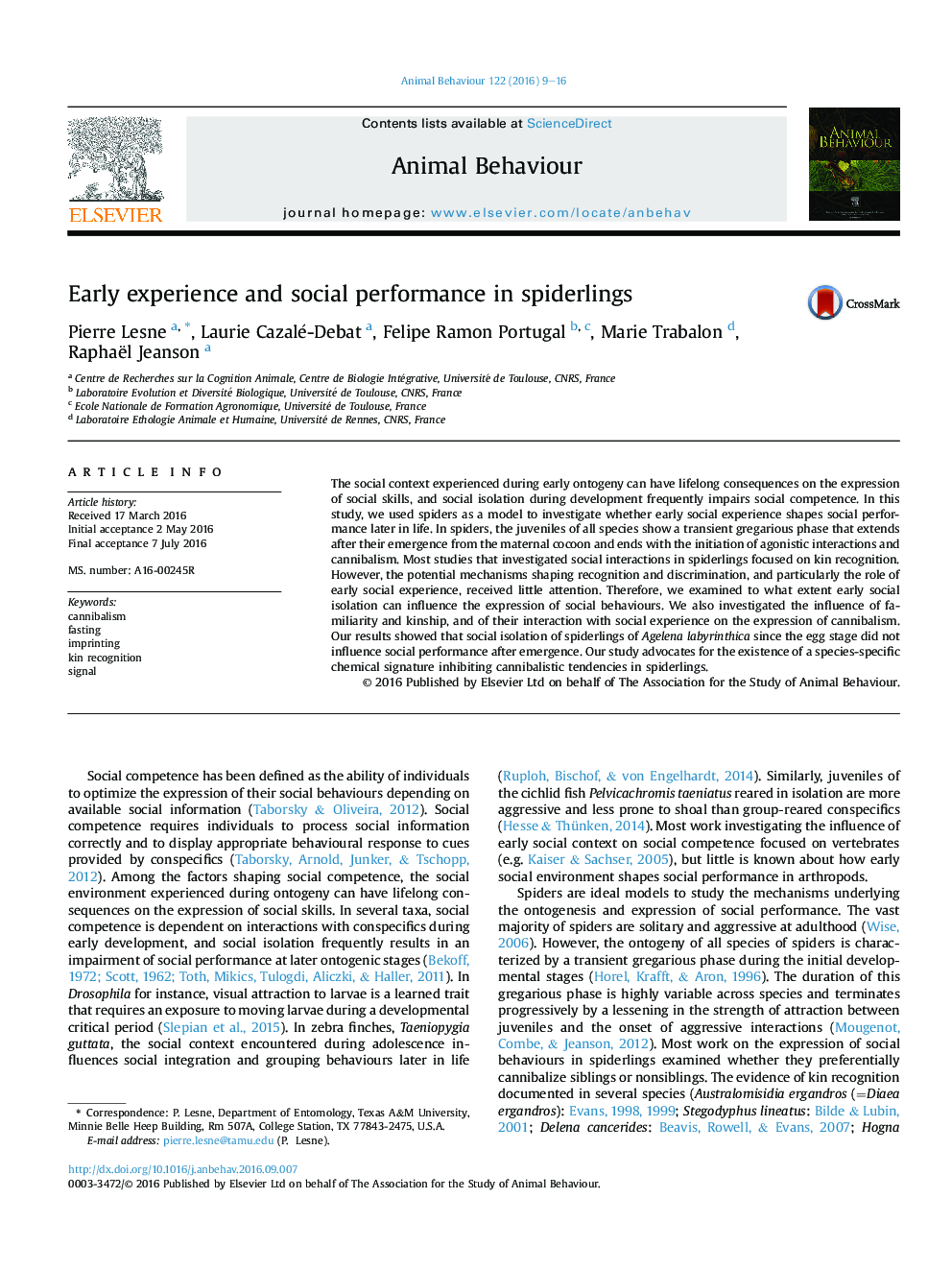| Article ID | Journal | Published Year | Pages | File Type |
|---|---|---|---|---|
| 5538367 | Animal Behaviour | 2016 | 8 Pages |
Abstract
The social context experienced during early ontogeny can have lifelong consequences on the expression of social skills, and social isolation during development frequently impairs social competence. In this study, we used spiders as a model to investigate whether early social experience shapes social performance later in life. In spiders, the juveniles of all species show a transient gregarious phase that extends after their emergence from the maternal cocoon and ends with the initiation of agonistic interactions and cannibalism. Most studies that investigated social interactions in spiderlings focused on kin recognition. However, the potential mechanisms shaping recognition and discrimination, and particularly the role of early social experience, received little attention. Therefore, we examined to what extent early social isolation can influence the expression of social behaviours. We also investigated the influence of familiarity and kinship, and of their interaction with social experience on the expression of cannibalism. Our results showed that social isolation of spiderlings of Agelena labyrinthica since the egg stage did not influence social performance after emergence. Our study advocates for the existence of a species-specific chemical signature inhibiting cannibalistic tendencies in spiderlings.
Related Topics
Life Sciences
Agricultural and Biological Sciences
Animal Science and Zoology
Authors
Pierre Lesne, Laurie Cazalé-Debat, Felipe Ramon Portugal, Marie Trabalon, Raphaël Jeanson,
